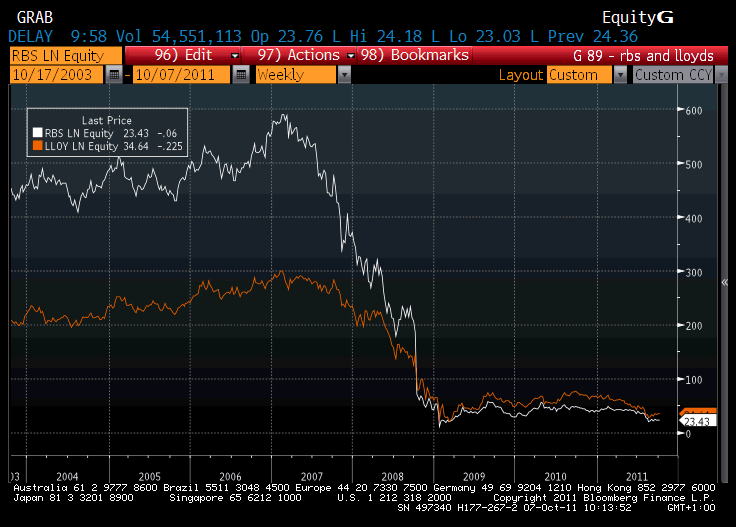Three years on from the Great Bonus Bailout, where is the UK taxpayer standing on their investment in the UK banks? The answer is less than encouraging. RBS shares currently trade at 23.9p, less than half of the 50.5p purchase price. And Lloyds provides a similar picture — the taxpayer got in at around 74p and now the shares languish at 35p. The taxpayer is sitting on a loss of around £35 billion at present on these two investments.

The picture at the collection of other banks that the UK taxpayer proudly owns is little better. The Financial Services Compensation Scheme is the off balance sheet vehicle in which most of these investments have been tucked away. It is now expected that losses on the bailouts of Singer and Friedlander and Heritable Bank will see around 20 per cent losses, while London Scottish Bank could see losses as high as 70 per cent. Icesave remains a several £billion potential black hole as legal action against Icelandic taxpayers progresses. The Chancellor acknowledged earlier this year that the taxpayer is likely to take losses even on the “good bank” part of Northern Rock.
As much as half of the £117 billion the UK taxpayer handed over 3 years ago may ultimately have to be written off.
The real danger now is that more money be needed. The FT reported on its front page yesterday that further fiscal transfers to RBS may be required. Robert Peston has even conjured up the spectre of full nationalisation. All year, the markets have been flashing warnings via CDS spreads and the very low price/book ratios of the UK banks that all is far from well.
The cover story given at the time — that this was a necessary move to protect the flow of credit to small businesses — does not look too good either. The below chart shows that credit flows to small businesses have continued to contract at an ever greater pace for the past 3 years.

Project Merlin was well named. It’s an absolute fairytale that the Bonus Bailout has ever worked to the benefit of UK businesses or taxpayers.






Comments